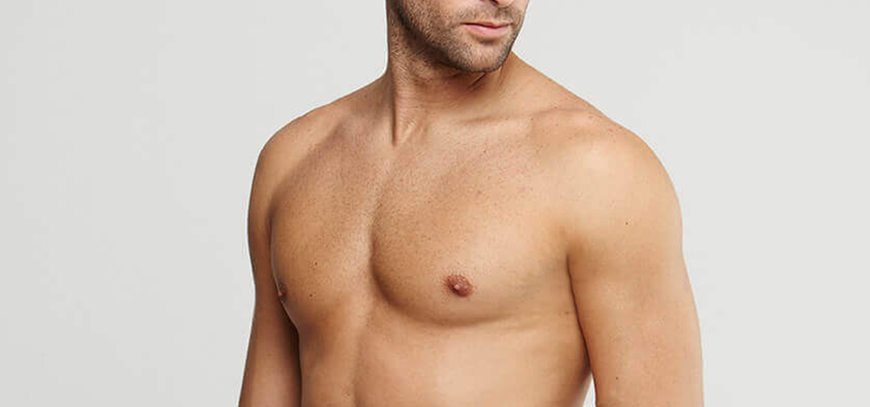Ask the Experts
Gynaecomastia

Male breast reduction surgery (also known as Gynaecomastia surgery) involves the removal of fat and excess glandular tissue from the chest area. This can be achieved by liposuction alone or by a combination of liposuction and excision of excess tissue. The result is a more toned, natural looking male chest that conveys self-confidence when wearing clothes or swimming.
Causes of gynaecomastia:
- Hormone imbalance
- Obesity
- Puberty
- Older age
Breast Reduction Recovery:
Following your surgery, you may be required to stay overnight in our hospital. After the operation, it is expected to experience swelling and pain that can be prevented through painkillers. Your doctor will provide you with a free medical package to reduce the time you need to recover and avoid any complications. You might feel breast soreness for a few weeks, the scars might take several months to fade, and it’s all normal.
You will need to take one to three weeks off work, and you will be wearing an elastic garment day and night after the operation for several weeks.
Who is a good candidate for Male breast reduction surgery?
The ideal candidate is someone who has realistic expectations of what surgery can achieve and is undergoing surgery for themselves and not for anyone else (eg. pressure from partners or family, undergoing surgery to salvage a relationship or try to procure or keep a job). It is important to understand that cosmetic surgery performed is done with finesse, with the aim of giving a subtle but noticeable natural and elegant look.
You may feel some pain and discomfort after surgery; it’s normal after any plastic surgery procedure.
You might feel breast soreness for a few weeks, as with all major cosmetic surgeries, there will be a period of recovery afterward. For the first week, you’ll need to wear a special compression garment that helps the area heal, though most patients can return to work after anywhere between 3 days to 2 weeks.
You should sleep on your back, elevated with at least one or two pillows in order to minimise swelling. Avoid any strenuous activity or heavy lifting.
